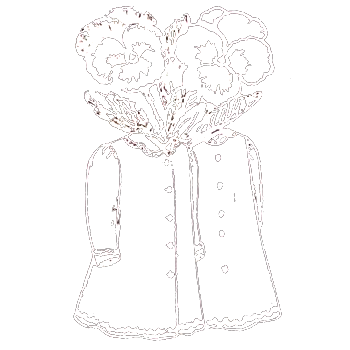Year By Year Poems: Author's Note
Year By Year Poems (2019)
When I grew up in Memphis, Tennessee, in the 1970s, I had a great aunt named Isabel. Aunt Isabel was passionate about poetry. She loved the works of writers such as Kathy Acker, Denise Levertov, Philip Levine, and Marianne Moore, and expressed her admiration for the connection between word and image through her lifelong collecting of books made by artists and poets in collaboration. She had hundreds of these books and was thrilled to show her collection to me throughout my teenage years. Little did I know how affected I would be by the hours we spent together turning the pages of her books. It was during these exhilarating moments of discovery that I began to find my own artistic muse.
I’ve been making personal, experimental documentary films since 1983. I began writing the poems in this book in 2011, the year I turned fifty. It seemed like a good way to mark my first half century and a reason to return in a deep way to poetry, which had always been an integral part of my work. After deciding to write a poem for every year of my life, I asked myself a simple question: How have the private, most intimate moments of my life been affected by the public world beyond?
Once, while visiting an exhibition at the Museum of Modern Art in New York City, I discovered the work of Serbian conceptual and media artist Sanja Iveković. In one black and white video made over a period of fourteen years in the ‘70s and early ‘80s, she created a remarkable visual conversation between her life as a mother at home with her child and her observations on the Yugoslavian police state. In one sequence, she cuts back and forth between a tall glass of milk and a street tussle with soldiers. In another, she shifts from an infant’s eye to state TV propaganda. The effect, for me, was breathtaking. These images created a convergence of shared and distinct experiences that could only be realized by Iveković. By connecting moments in my own private and public spheres, I too could use my writing to construct precise investigations of disparate, yet parallel moments in time. In this way, I gained a better understanding of how and why I had become the person I was at age fifty.
I spent five years writing this collection of poetry. At the same time, I made an eighty-minute experimental documentary, Tip of My Tongue, which used many of these poems as its skeleton. In the process of making this film, I discovered Portuguese writer Fernando Pessoa’s novel, The Book of Disquiet. Pessoa’s narrator makes an observation: “Everything that surrounds us becomes part of us.” In this single sentence, I found an eight word distillation of my endeavor.
I dedicate this book to my parents, Diane Sachs and Ira Sachs, who gave me a box of crayons and a notebook, and opened the door.
—Lynne Sachs
2019
